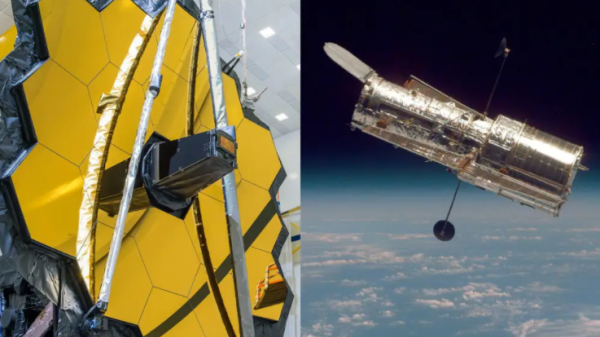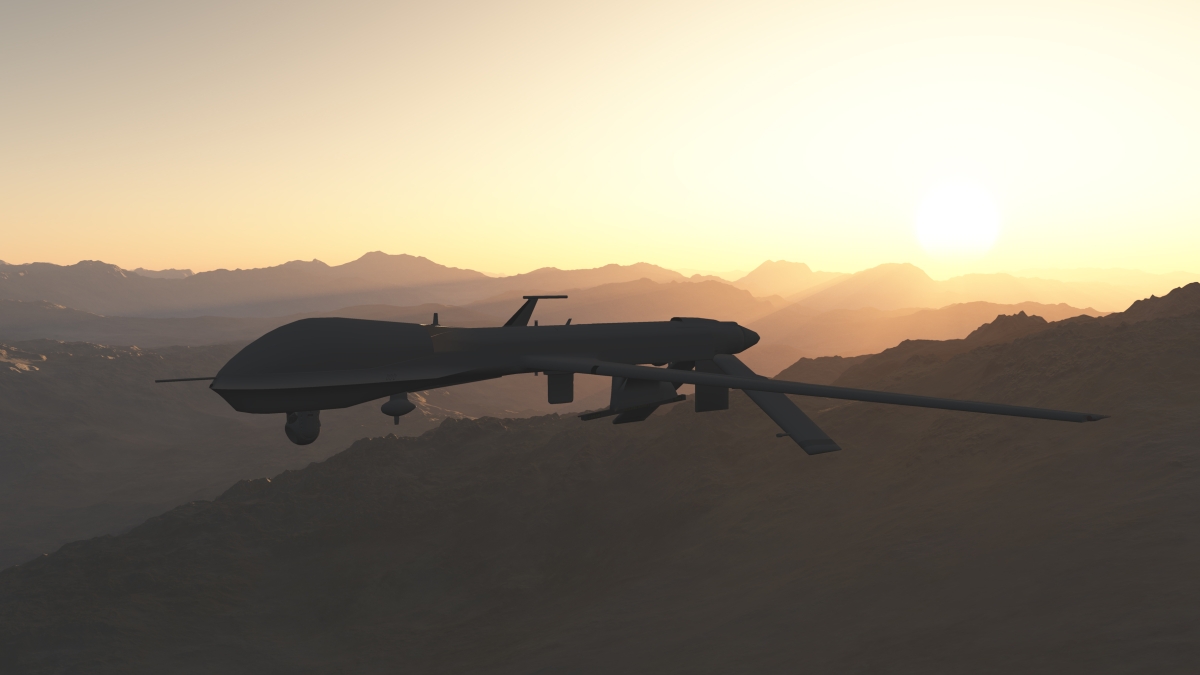Drones are an important tool in homeland security operations but can also be a threat when used by malicious actors. The Center for Accelerating Operations Efficiency, a Department of Homeland Security Center for Excellence led by Arizona State University, partnered with the Department of Homeland Security Science and Technology Directorate and industry leader Boeing to examine this current homeland security challenge.
Drone Defense was part of Devils Invent, a series of engineering and design challenges organized by ASU’s Ira A. Fulton Schools of Engineering. The three-day virtual event paired students with academic and industry mentors to solve a problem focused on security challenges that could occur in the Phoenix metropolitan area, such as threats to Sun Devil Stadium or Sky Harbor International Airport.
The event was kicked off by Bill Bryan, a Department of Homeland Security senior official performing the duties of the undersecretary for science and technology, who explained the role of drones in homeland security.
According to Bryan, some of the positive ways drones are currently used for homeland security operations include safety inspections for bridges and stadiums, delivery of supplies and medications, and helping battle wildfires. He also discussed the Department of Homeland Security's mission to focus on countering unmanned air systems to protect critical infrastructure and essential services.
When mentioning career opportunities at the Department of Homeland Security, Bryan explained, ”When you come to work at DHS you will be given the opportunity to help the department identify where holes exist with smart drone technologies and how we should integrate future advances such as AI, machine learning and quantum information systems.”
Ken Dunlap, the former vice chairman of the Department of Homeland Security Aviation Security Advisory Committee and a managing partner of Catalyst-Go, set the stage for drone defense by giving a comprehensive overview of the economics of drones, current security concerns and the future of drones. Dunlap also stayed on through the event as a mentor, joined by ASU faculty members Ross Maciejewski and Dan McCarville, and industry experts Lisa Custer, Peter Harrigan and Ion Vintilescu.
Twelve teams completed solving various challenges that drones may encounter in homeland security. The challenge scenarios included developing a countermeasure for an unmanned aerial vehicle threat to either airport security at Sky Harbor, a stadium — such as Sun Devil Stadium — or an Amazon drone delivery. All of the teams offered creative solutions for the challenge scenarios.
The winning teams
1st place team
KCAaN
Nihar Masurkar, Andrew Deros, Alexander Hollar, Connor Durkee, Kyle Muncie
Proposed a drone capture device that created a mini kill zone that allowed for safe disposal of a threat.

Video courtesy CAOE ASU.
2nd place team
Honey Badgers
Benjamin Berrey, Christian Stoddard, Andrew Hredzak, Hector Nunez, Madhav Seth.
Devised a computer vision model that could use multiple cameras to track a drone’s position in three dimensions.
3rd place team
DevilSec
Ankur Chowdhary, Matt Keeley, Matthew Merrill.
Proposed a moving target defense in which changing defense protocols would make it more difficult for attackers to analyze their defense patterns.
Honorable mention team
IMpossiblee
Mohit Bhagwat, Suhrud Hambir, Andkit Das, Yash Bhalchandra, Stefan Marth, Vineet Butala
Awarded an honorable mention for their incredibly thorough research.
Written by Dawn Janssen
More more information, contact CAOE at caoe@asu.edu.
More Science and technology

New AI for a new era of discovery
As the legend goes, in 1665, Sir Isaac Newton sat in his garden at Woolsthorpe Manor in England and looked on as a lone apple dropped from a tree branch, falling straight down. This chance encounter…

ASU receives 3 awards for research critical to national security
Three researchers in the Ira A. Fulton Schools of Engineering at Arizona State University have received grant awards under the Defense Established Program to Stimulate Competitive Research, or…

Celebrating 34 years of space discovery with NASA
This year, NASA's Hubble Space Telescope (HST) is celebrating its 34th anniversary of the world's first space-based optical telescope, which paved the scientific pathway for NASA's James Webb Space…
